9The world is currently experiencing a complicated political, social and economic period. War in Ukraine, the fallout of the two-year long global health emergency, supply and inflationary concerns – it would be easy to become overwhelmed by the constant stream of global news.
This Book Lovers Day (August 9th), we’re encouraging investors (or anyone interested in the global infrastructure) to take the time to read, to better understand some of the key issues facing humanity in 2022. From the fuel economy to the recovery process following significant global financial disruption, there’s a must-read book for every core topic.
So, with summer in full swing, here are six recommendations from our team to help you get a better understanding of the factors affecting your portfolio and your community.
After the Music Stopped: The Financial Crisis, the Response, and the Work Ahead – Alan S. Blinder (2013)
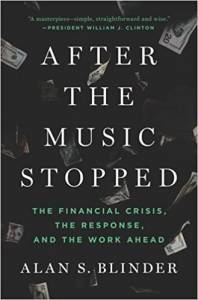 With the UK seemingly slipping into a recession, it can be illustrative to look to previous financial crises and understand not just how they happened but how the economy rebuilt itself in the years after the event.
With the UK seemingly slipping into a recession, it can be illustrative to look to previous financial crises and understand not just how they happened but how the economy rebuilt itself in the years after the event.
After the Music Stopped is a comprehensive breakdown of the causes and repercussions of the 2008 financial crisis. The book dives into the complexity and lack of regulation inherent in the US economy in the lead-up to the crisis, giving an accessible yet complete picture of the crisis, which highlights just how fragile the world’s economy can be in a globalised system.
The book also considers the (at the time) unprecedented measures taken by the Fed to prevent the system from falling apart completely, and how we avoided the absolute worst-case scenario despite the enormous upheaval. They say that to know your future you must know your past, and After the Music Stopped is a dive into the recent past, a story that’s still relevant today.
Global Energy Politics – Thijs Van de Graaf and Benjamin Sovacool (2020)
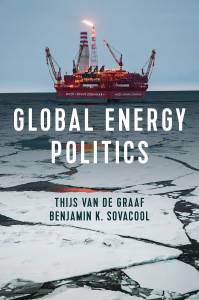 Since the industrial revolution, energy has played a key role in world politics and the global economy. Anyone in the UK will be acutely aware of the role energy prices are paying in life in 2022, with skyrocketing supply costs being passed onto consumers both in terms of the fuel itself and in terms of production costs for everyday items.
Since the industrial revolution, energy has played a key role in world politics and the global economy. Anyone in the UK will be acutely aware of the role energy prices are paying in life in 2022, with skyrocketing supply costs being passed onto consumers both in terms of the fuel itself and in terms of production costs for everyday items.
War in Ukraine has highlighted how reliant Europe in particular is on Russia for its oil, a story that will continue to develop as the invasion continues. In Global Energy Poltiics, Van de Graaf and Sovacool examine how the supply and consumption of energy have shaped global security, the economy, the environment, and justice. In 2022, these pillars have never been more relevant.
Global Energy Politics also looks ahead to the clean energy revolution, comparing it in scale to the movements from wood to coal and coal to oil. For anyone who wants a comprehensive overview of how the politics of energy influences financial markets (and, indeed, investment portfolios), there’s no better place to start.
Monetary Policy, Inflation, and the Business Cycle – Jordi Gali (2015)
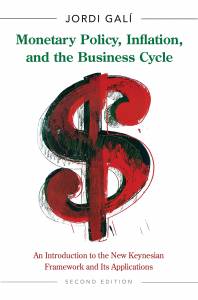 You don’t have to be interested in economics to know that inflation is the most pressing issue facing UK consumers in 2022. Generational levels have seen prices rise by close to 10% year-on-year, with the figure expected to peak towards the end of the year. A perfect storm of supply issues and a sharp increase in the cost of energy have led to spiralling inflation that Central Banks across the world are having to take action to combat.
You don’t have to be interested in economics to know that inflation is the most pressing issue facing UK consumers in 2022. Generational levels have seen prices rise by close to 10% year-on-year, with the figure expected to peak towards the end of the year. A perfect storm of supply issues and a sharp increase in the cost of energy have led to spiralling inflation that Central Banks across the world are having to take action to combat.
In Monetary Policy, Inflation, and the Business Cycle, Macroeconomist Jordi Gali gives an overview of the role that monetary policy plays in keeping inflation under control. Gali examines the optimum level of inflation and how that is achieved, as well as giving the reader an idea of the issues that affect the design of monetary policy.
The New Keynesian Framework is the macroeconomic lens through which Gali explores inflation. For an understanding of how monetary policy impacts inflation and how Central Banks come to decisions around it, Monetary Policy, Inflation, and the Business Cycle is essential reading.
The Psychology of Money: Timeless lessons on wealth, greed and happiness – Morgan Housel (2020)
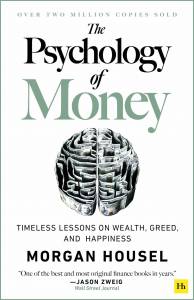 As a wealth manager, we know that investing is as much about psychology as it is about crunching numbers. The ability to have patience and remove emotion from investing as much as possible can be the difference between growing your wealth steadily over time and missing out.
As a wealth manager, we know that investing is as much about psychology as it is about crunching numbers. The ability to have patience and remove emotion from investing as much as possible can be the difference between growing your wealth steadily over time and missing out.
In The Psychology of Money, Morgan Housel explores the important role that behaviour plays in financial management, through the medium of 19 short stories that illustrate key lessons. In times of volatility, like the first six months of 2022, it’s important to understand how best to navigate choppy waters and Housel’s stories can help.
People don’t make financial decisions in a vacuum – emotion, biases, fear, marketing, and a number of other factors play a role. Housel has a knack for conveying complex ideas in a straightforward manner – it’s also a relatively short book, so can be an ideal read on holiday. For anyone looking to better understand why they make the financial decisions they make, The Psychology of Money is a great place to start.
Broke Millennial: Stop Scraping By and Get Your Financial Life Together – Erin Lowry (2017)
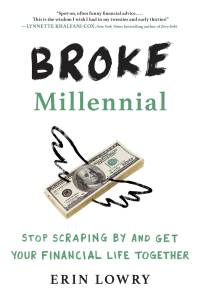 Erin Lowry’s series may be called Broke Millennial, but the financial lessons are becoming more and more applicable to generation Z as the years roll by. For a lot of people in the 20s and 30s, the idea of true financial stability feels like a pipe dream. Millions of people in the UK live pay check to pay check, with long-term financial goals put on the back burner.
Erin Lowry’s series may be called Broke Millennial, but the financial lessons are becoming more and more applicable to generation Z as the years roll by. For a lot of people in the 20s and 30s, the idea of true financial stability feels like a pipe dream. Millions of people in the UK live pay check to pay check, with long-term financial goals put on the back burner.
Stop Scraping By and Get Your Financial Life Together does what it says on the tin; it’s a comprehensive, easily digestible guide for younger people, which aims to give you the tools to make better financial decisions and slowly but surely build a solid foundation. The book focuses just as much on our relationship with money as it does with our credit card situation or our student loans, all with good humour and insight you can only get from someone with lived experience.
This won’t be for all of our investors – a lot of you have established, consistent saving patterns and long-term goals that suit your lifestyle. For those that are perhaps new to investing, or want to inject a little more consistency and regularity into their investment patterns, Broke Millennial is worth a read.
Limonov: The outrageous adventures – Emmanuel Carrère (2015)
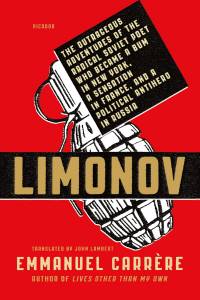 The final book on our list is Limonov, a pseudo-biography of Russian writer Eduard Limonov. It’s not quite a novel, not quite a biography. Carrère only interviewed the titular writer once a full draft of the book had been produced. It’s a mythologising work that reads like a novel, a sweeping account of an undeniably remarkable life.
The final book on our list is Limonov, a pseudo-biography of Russian writer Eduard Limonov. It’s not quite a novel, not quite a biography. Carrère only interviewed the titular writer once a full draft of the book had been produced. It’s a mythologising work that reads like a novel, a sweeping account of an undeniably remarkable life.
Limonov details the writer’s journey from Ukraine to New York, then from Paris to Russia. Whether you read the character as a hero or a scoundrel, Limonov is a book that comes down on neither side.
In 2022, the story of Limonov perhaps takes on a deeper significance. The book shines a light on post-Soviet Russia, Vladimir Putin’s reign, and on the relationship between Russia and Ukraine. From the Oligarch’s pillaging of the economy to the wild-west capitalism, Carrère’s work is as much an overview of the history of the Soviet Union since 1989 as it is a mythologising text about Limonov himself.
*As with all investing, financial instruments involve inherent risks, including loss of capital, market fluctuations and liquidity risk. Past performance is no guarantee of future results. It is important to consider your risk tolerance and investment objectives before proceeding.





